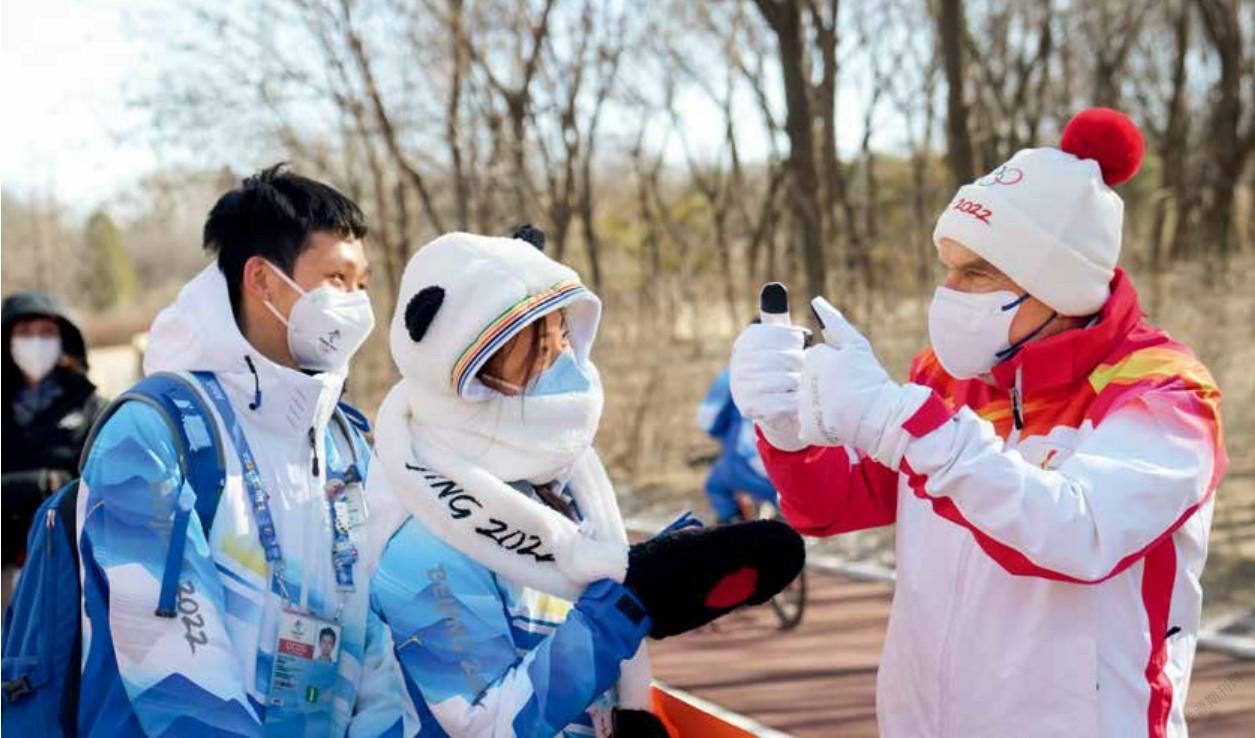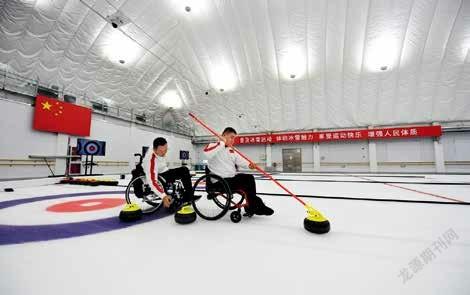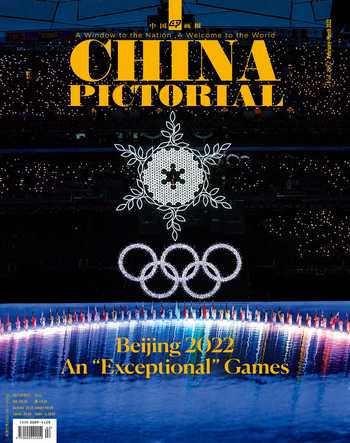Intangible Legacies of Beijing 2022
by Laszlo Vajda


Talk of Olympic legacy generally focuses on amazing, new venues for sports, multi-purpose facilities like exhibition and conference sites, and grand and long-needed urban infrastructure like roads and railways, airports, and traffic systems. Excited Olympic experts and enthusiastic city administrators are always happy to explain how the Gamesnewly-built infrastructure will serve the communities long after the Games conclude.
These legacy items are obvious, tangible, and easily understandable. At times, some of them may become the target of criticism; occasionally, some question the need for some of these buildings at all.
Beijing 2008 produced the majestic National Stadium(nicknamed the Birds Nest), the flamboyant National Aquatics Centre (nicknamed the Water Cube), and the then trend-setting, state-of-the-art Beijing Capital International Airport Terminal 3, just to mention a few.
Beijing 2022 is delivering the brand-new National Speed Skating Oval with its exciting and intriguing design, the Beijing-Zhangjiakou High-speed Railway, and the remarkable urban development of the old industrial park of Shougang, again, just to mention a few.
The buildings in and around Beijing constitute a set of extraordinary Olympic legacies, exemplary for all future Games around the world. Their successful sustainability is a fine example of the long-term benefits such buildings can provide for people and regions.
And now, I am not going to talk about them further. I would like to highlight my own perspective on some other aspects of Olympic legacies that often get overlooked or not even considered: intangible legacies.
The year 2008 was notable for some ground-breaking intangible legacies in Beijing that affected all of China.
The Olympic Games then was a clear statement from China: a clear statement about her rise on the world stage. The 2008 Games marked Chinas full embrace of the world, while successfully preserving her long history and unique culture. The Games helped extraordinarily elevate Chinas international status in many areas, well beyond sports.
The national pride and consciousness that the 2008 Games evoked were one of the most important such occurrences in Chinas modern history. China set a trend. The remarkable benefits from hosting the Olympics in terms of boosting national pride and the love for the country were carried on through the two Games following Beijing 2008. Vancouver 2010 and London 2012, among many other positive aspects, were notable for their contributions to patriotism and nation-building in Canada and the UK, respectively. I was personally amazed to see and experience Beijing after 2008 and its conversion into a genuine international metropolis.

The multiple legacy aspects directly affecting social life in Beijing and, in many ways, in China, included, for example, the strong emergence of volunteerism. Volunteering, particularly on the gigantic scale of a Summer Olympics, was not previously such a big part of civic life in China. Volunteer groups ever since have been continuing to offer support to various events and social undertakings. The year 2022 is a true beneficiary of this lasting trend. The over one million volunteer applications received by Beijing 2022 had represented astounding proof. The Beijing 2022 Volunteer Department had to “struggle”with the pleasant and inspiring challenge of juggling far too many applications. Although many enthusiastic applicants had to be turned down, Beijing 2022 has already invested tremendous and successful efforts in contributing to the volunteering culture.
Beijing 2022 will train a big talent pool for the labor market of China. After being exposed to the multicultural Beijing 2022 Games, these professionals, most in their 20s, 30s, and 40s, will carry forward a new and modern international approach in their future employment. Their exposure to an environment of delegations of almost 100 countries and regions will be a remarkable asset in their future work. I see companies in the various financial, hospitality, events, and business sectors striving to engage these professionals following the 2022 Games.
National pride, volunteerism and top-level professionals are some of the intangible legacies the 2022 Games produce for Beijing, Zhangjiakou, and beyond. For me, the true miracle of these legacies is that their sustainability rests in how future generations manage to transfer them. Building particularly on the strong family traditions of China, I have no doubt that these legacies will not only persist but strongly contribute to Beijings future well beyond 2022.
Finally, I would like to mention another intangible legacy that the 2022 Games, building on the achievements of 2008, will profoundly deliver to civic life in Beijing and even around China. This legacy mainly derives from the 2022 Paralympic Winter Games. China has come a long way in her recognition and proper dealing with inclusiveness when it comes to people who live with a disability. There obviously are clear laws by now in China governing the requirements of accessibility. Yet, for me, the most outstanding legacy aspect of inclusiveness has been the rapidly changing social acceptance and general consideration that by now have become a genuine part of Chinese civic life relating to people with disabilities. The Beijing 2022 Games has already given and will continue to give a substantial boost to how Chinese society incorporates the proper acceptance and proper approach to people with disabilities.
While the beautiful National Speed Skating Oval in Beijing, the imposing National Ski Jumping Center, nicknamed the Snow Ruyi (traditional Chinese auspicious ornament), in Chongli, and the stunning Olympic Village in Yanqing are all remarkable legacies of the Beijing 2022 Games, I am equally inspired by the intangible legacies of Beijing 2022, which, I am certain, will not only inspire future generations but also contribute to better life in Beijing and even China well after the conclusion of the Winter Games in late March 2022.

